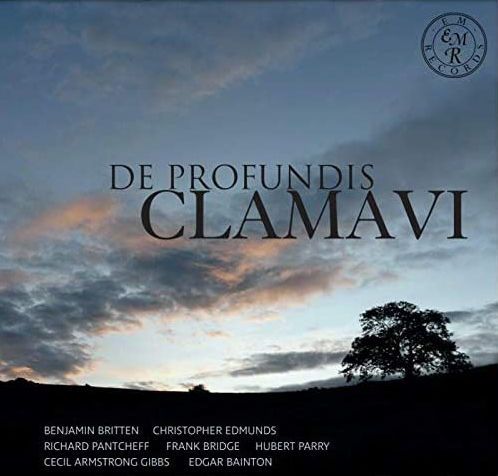Christopher Edmunds
Piano Sonata
Edgar Bainton
Variations and Fugue Op.1
Willows
The Making of the Nightingale
Cecil Armstrong Gibbs
An Essex Rhapsody
Ballade
Richard Pantcheff
Nocturnus V Wind oor die Branders
Piano Sonata
Parry
Shulbrede Tunes
Bridge
Piano Sonata
Britten
Night Piece (Notturno)
Duncan Honeybourne Piano
EM Records EMRCDO70-71
2 CDs Full Price

The Review
Only the works by the famous composers, Britten, Bridge and Parry in this set have been recorded before so Honeybourne’s selection is bound to be a series of discoveries. EM Records is pursuing its task of exploring the attic of English music with diligence.
Sometimes the result is a gem that truly deserves dusting off, like Bainton’s Variations and Fugue from 1898 (when he was only 18 and a pupil of Stanford’s), at others times one is glad the piece can heard but one would not go out of the way to hear it often, like Edmunds’ 1938 sonata, where the middle movement gets stuck in a line of clunky chords.
This is not a random collection, though, and Edmunds’ work fits well into an overall feeling of brooding and dramatic apprehension, reflected in the title Honeybourne has given the set: De Profundis Clamavi (I Have Called From The Deep). It is not all dark. There is nothing too painful in Parry’s Shulbrede Tunes: wistful and affectionate but not troubled. Parry wrote these little portraits of life at his daughter’s house, Shulbrede Priory in West Sussex, just before WW I and they are delightfully crafted in the Schumann and Brahms tradition. It is amazing more pianists do not bring them into their repertoire.
Bainton was a much better composer than his reputation suggests. He has been overlooked largely because he was interned in Germany during WW I, then was big in Newcastle, not London, before he emigrated in 1934 to Sydney to direct its conservatoire. He died sixty-five years ago but at least the business is starting to take notice. The Willows and The Making of the Nightingale are from his Newcastle years in the ’20s and fit very much into the Debussy genre. Frank Bridge’s sonata, almost 40 minutes long, from the same period is of sterner stuff, both musically and technically. Born within months of Bainton, he was exploring the experimental movements swirling around in Europe at the time: post-Scriabin, not far from but less severe than the sound worlds of composers like Reger, shifting in tempo and chromaticism restlessly. The second movement Andante of this sonata is an extraordinary work on its own, intense and introverted. Honeybourne captures the anxious mood with great subtlety.
Even forty years later, when the Night Piece was written, his pupil Benjamin Britten, who could be quite psychologically complicated enough, did not rival Bridge’s sonata for tortured foreboding. The one living composer in this set is Richard Pantcheff, now in his early sixties (very much my generation), and best known for his organ music. His sonata was written four years ago for Honeybourne and cites lines from the Greek poet Elytis – who won the Nobel prize for literature in 1979 – as an inspiration. It is a good place to start but I wish I could be more enthusiastic about the results. For my taste there are too many irritatingly persistent repeated notes in the first and last movements, as though shouting equals importance, and the slow movement is ponderous rather than profound.
This generous set (of two and a half hours) is a triumph for Duncan Honeybourne’s intelligent pianism and worth collecting for the Bainton, Bridge and Parry recordings. The other pieces may not be in the same league but they still repay curiosity.
SM
